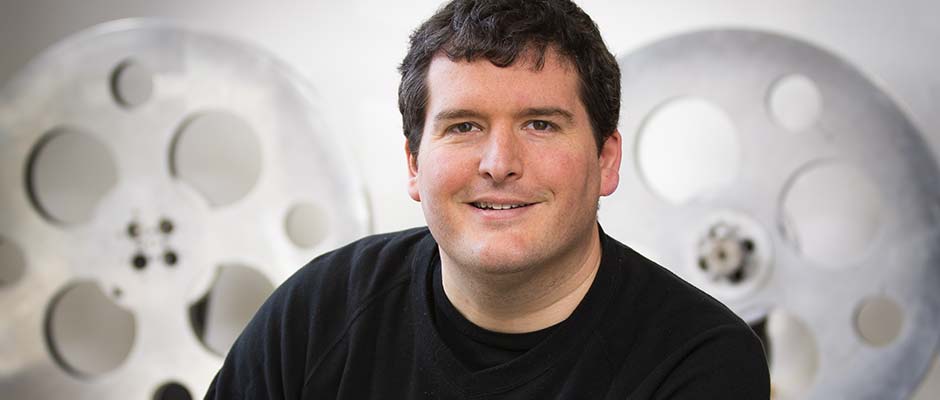
A working writer
The pitch was going well; the executive was laughing and taking notes. But then she asked an unexpected question. Could he change the gender of one of the lead characters? A female lead would be more inclusive of the network’s demographics and provide a vehicle for one of its rising stars.
Amberg remembers that it wasn’t as simple as saying ‘yes.’ He had to quickly run through the plot, scanning for the “ripples that come from tossing that rock in that pond. I knew the story so well that I was able to do that in the moment. The fact that I was able to answer authoritatively about the specifics of how I’d adjust the story gave her the confidence to buy the project in the room.”
With that sale, Amberg earned membership in the Writers Guild of America, a life-changing milestone that resulted in larger contracts and meaningful benefits. The experience also affirmed an essential principle: that flexibility is the foundation of life as a working screenwriter.
Now, as the coordinator of Missouri State’s screenwriting programs in the department of media, journalism and film, Amberg helps emerging writers develop their skills and learn to navigate the industry.
Amberg’s creative activities keep his knowledge sharp. Since joining Missouri State in 2013, he has completed contracts with Disney Channel and Cartoon Network. He makes regular trips to Los Angeles, where he meets with contacts at film, TV and Web entertainment companies, including Nickelodeon, Amazon and Awesomeness TV. His work has been recognized with a number of awards, including Best of Competition in Faculty Scriptwriting at the Broadcast Education Association Festival of Media Arts.
Lessons from the industry
Amberg is straightforward with students about the industry’s unpredictability. Companies’ mandates shift; executives get reshuffled; different personalities respond to different types of material. And these all affect whether a writer’s work gets produced.
But Amberg also focuses on the constants, like the importance of developing a strong work ethic, mastering the fundamentals of story and – most importantly – understanding the writing process.
“I don’t want anyone to be in a situation where they find themselves staring at a blank screen,” he says. “I want them to know how to tell a character-based story that is held together by the tools of writing, not dependent on one idea. And if they get some great, awesome idea, they will be able to execute it. And if they get hired onto a project, they’ll know how to deliver the best version of someone else’s idea.”
Amberg also encourages humility and perspective. “Everyone in this business is working hard, and no one came to Los Angeles with the goal of making someone else’s dream come true. It’s important to be kind to other people and assume that everyone’s doing their best. And when the planets align and a project works, it’s great.”
Amberg often shares with students that when he first started out, he believed compliments indicated a meeting was going well. As he gained experience, he learned that questions, not compliments, are the true sign of a project that’s resonating. “When people are really interested in something, they want you to make changes,” he says.
This dynamic can feel bruising to creatives, who are sometimes considered overly protective of their work, and Amberg empathizes. “Screenwriting is unlike many other kinds of writing, where the writer is king,” he says. “But it’s important to remember that the executives you work with are smart, creative people, too. They’re tasked with thinking strategically about multi-million dollar projects. And their changes aren’t arbitrary; they just have more information about what they need.”
According to Amberg, the ability to collaborate and create a production-ready script is essential, not only for career success but for the strength of the story.
“You love your script,” he explains. “So you change it and adapt it to survive in the market – the same way you’d raise a child to survive in the world.”
Further reading
Get your creative juices flowing with a degree from the media, journalism and film department


Excellent profile of a fabulously talented teacher we are fortunate to have at Missouri State University. Our students will benefit from Richard Amberg’s experience!!
Great feature story! We enjoy working with Rich and his students at the Music & Media Collections in Meyer Library.
Really good story with excellent advise for students who wish to pursue a career in screenwriting or any other sort of creative collaborative experience. Rich is a great addition to the Media, Journalism & Film Department and the Electronic Arts Program at Missouri State. We are lucky to have him.